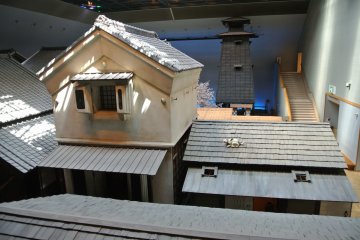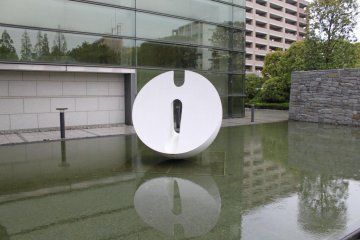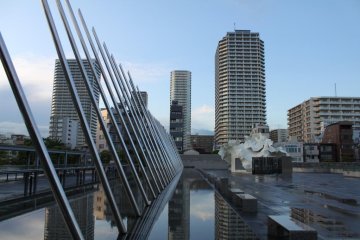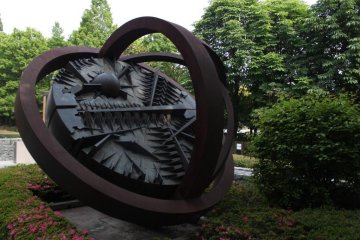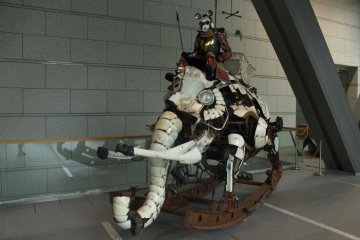Tokyo is packed with art museums and what is even better - it makes contemporary art accessible and easily understandable. I happen to be a fan of all those crazy installations, huge meaningless photos and weird pictures, and if you are in Tokyo now there is a big chance that it will turn you into art maniac too! Even if you have never ever heard about any Japanese artist, but want to see what all the fuss is about, a great place to start is Tokyo Museum of Contemporary Art.
As is always the case with art museums, the building itself is a kind of an art object surrounded with some worthy-of-your-attention installations. Relax and meditate a bit in the grand main hall to get just in the right mood for art, and when you feel inspired enough go to the special exhibitions first (there usually are two or three), and then treat yourself to the main collection. The museum is mainly devoted to Japanese art, but also contains some very valuable items from abroad – for example, legendary Andy Warhol’s piece “Marilyn Monroe”. Special exhibitions of foreign artists are also fairly common.
What I personally love about Japanese contemporary art is that you never know what to expect of it. When you go to the exhibition you may end up lying on the floor and watching some abstract video-art on the wall or the ceiling; trying to find your way out of a labyrinth; or figuring out optical illusions in a specially-built room.
Contrary to European contemporary art, which is mostly about ideas, Japanese is very emotional, colorful and if you try to capture its spirit in one keyword, I would pick “wonder”. Do not think too much about the meaning of the picture or installation, just enjoy your feelings about it. The main collection provides you with some really powerful stuff that can deliver a truly profound experience.
If you find some artist’s work especially interesting, but are not satisfied enough with the description given in a museum brochure, go to the art library on level B1. There you will be able to find catalogs and materials about current exhibitions and a big variety of books in Japanese, English and many other languages, which can help you navigate in a sophisticated world of modern art. When you feel that you are overwhelmed with information and impressions, have a snack in the second-floor Café Hai (Vietnamese food and coffee) or a “Contemporary Japanese-style Western Food” restaurant Content on B1.
Although the location of this venue is not some fancy area like Shibuya or Roppongi, you will definitely be pleased with Kiba Park, in which the museum is located. The picturesque Kiyosumi Garden and famous Tomioka Hachiman Shrine are also accessible by foot, so if you do not live in Koto-ku, come earlier to have some time to enjoy the surroundings.





